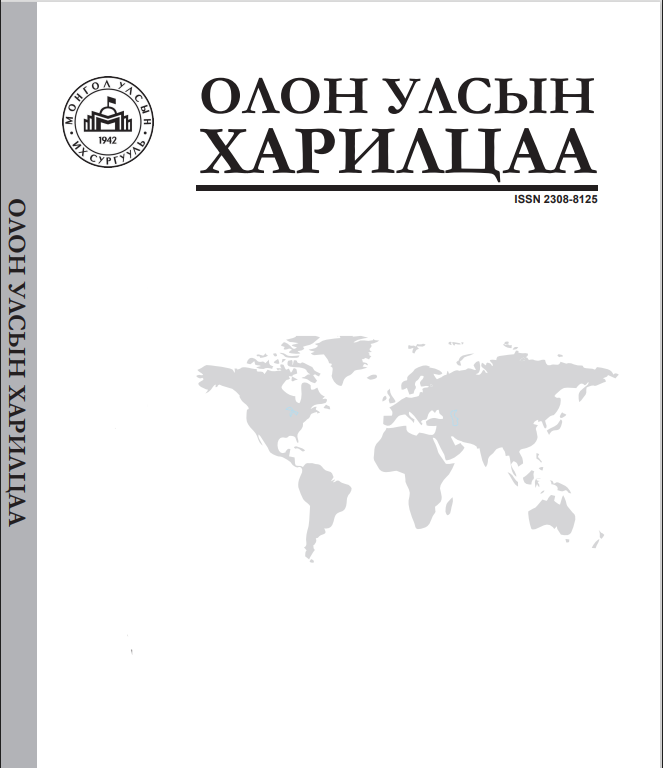Дизель түлшний зах зээлийн судалгаа П.Лхамсүрэн
Main Article Content
Abstract
Due to its inland, landlocked location and its shared borders with just two neighbours, Mongolia's foreign trade is highly dependent on these two countries. This is one of the factors impeding economic expansion. Owing to Mongolia's abundance of natural resources, over 90% of its exported goods are raw materials that come from mining. Thus, it pursues a policy of expanding and diversifying exports of mining and agriculture products with a comparative advantage based on its unique traits. Mongolia's economic security and prosperity are expected to be threatened by certain products that are entirely imported. Thus, one of those products—the market for diesel fuel—is taken into account in this analysis.
As a result of pandemics that have spread over the globe in recent years, nations have placed a higher priority on the health and safety of their citizens. This has had a detrimental impact on our nation's economy by interfering with regular international trade, transportation, and logistics. Uncertainty in foreign trade is further exacerbated by military conflicts, international political misunderstandings, and the possibility of war.
Currently, Mongolia imports all of the oil products it requires. In past years, 99 percent of it was supplied by the Russian company "Rosneft." Currently, "Rosneft" provides 60 percent, other Russian enterprises supply 33 percent, China provides 5 percent, and other countries, including the Republic of Korea, provide the remaining 2 percent1.
Due to Mongolia's total reliance on foreign sources for its fuel, changes in supply, exchange rates, and global oil prices could result in shortages of fuel and fluctuations in wholesale and retail prices, which could have a detrimental effect on the stability of our nation's economy. Thus, it is imperative to determine the economic impact of the diesel fuel market, mitigate its adverse effects, develop a methodology for calculating them, and take preventative measures.
This is consequence of the fact that the main economic sectors of our nation—mining, transportation, construction, agriculture, and foreign trade—all rely on consumption of diesel fuel, which has an impact on the output and production of these sectors.
As imports increase, there is a higher probability of becoming dependent on other nations. The purpose of this research is to elucidate the manners in which Mongolia's 100% import of diesel fuel impacts the nation's domestic market and production. Concurrently, a dynamic model was developed that analysed the diesel fuel consumption for each of the primary economic sectors in Mongolia, which include mining, roads, construction, agriculture, and so forth.
Downloads
Article Details
References
“Шатахууны үнийн өсөлтийн эдийн засаг дахь нөлөө” судалгааны тайлан. 2018 он
Деардорф, AV, 1998 он “Тарифын бус саад бэрхшээлийг хэмжих: Олон улсын эдийн засгийн судалгаа” Анн Арбор MI: Мичиганы их сургуулийн хэвлэл.
Дуламзаяа, Э.Дулмаа, Б.Аръяасүрэн, 2019 он “Импорттой өрсөлдөх аж үйлдвэрийн бүтээгдэхүүний шинжилгээ
Доктор Б.Очирбат, 2000 он, “Мал аж ахуйн салбарын динамик загвар”

